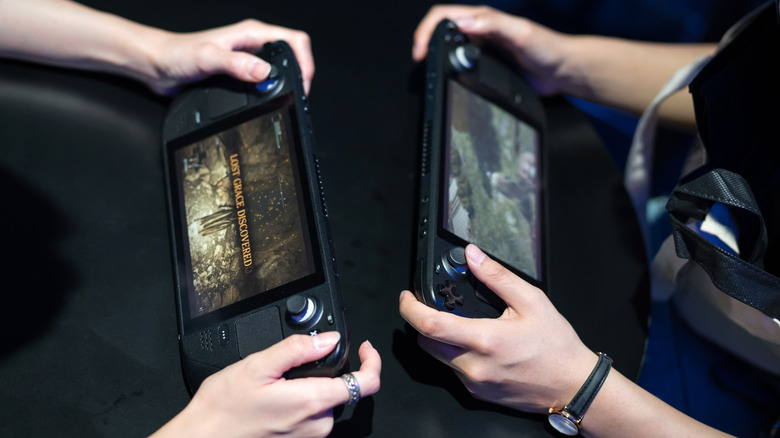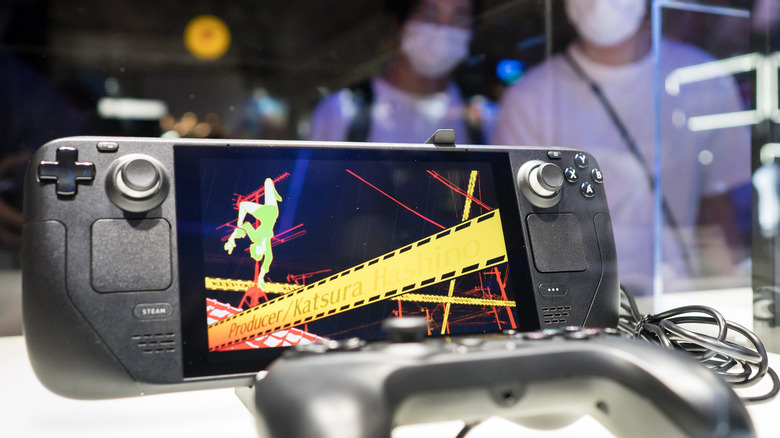A Second-Gen Steam Deck Should Address Some Major Issues
There are a lot of reasons to like the Steam Deck. Even if it's a little underpowered to handle some of the most graphically demanding titles of tomorrow, it plays a great number of today's games very well. It's a handheld companion to your lavish gaming desktop or laptop, yet wholly holds its own as a standalone system, capable of playing indie games and AAA blockbusters alike. It's the most significant competitor to the Nintendo Switch, and while that console is still selling like hotcakes, it can't quite offer what the Steam Deck does.
For example, you can install a whole Windows installation on your handheld, making way for productivity apps when docked, not to mention access to games that are otherwise unavailable directly through Steam. While we're still not sure it's reached its full potential, fans are already wondering what's in store for the future.
Any fears that the Steam Deck is a one-and-done Newell experiment have been squelched today. In a deep-dive talk with The Verge, Steam Deck designers Lawrence Yang and Pierre-Loup Griffais gave us a vivid look into the future of not just the current handheld, but what it's planning beyond.
Steam Deck is here to stay, but what's next?
We learned that the company currently doesn't have plans to make a "Steam Deck Pro" type of refresh, noting that it would prefer to keep performance consistent for a time while it continues working out some of the kinks in the current model. Those include subtle hardware and software changes, both of which are ongoing. For the former, we're told that Valve is silently improving things under the hood, such as button travel and feel, the ease of battery replacements, and quieter fans.
But there will come a time when Valve will look to overhaul the Steam Deck entirely. What that looks like is a mystery today, but it won't happen until there's a considerable jump in performance efficiency, according to the interview.
More powerful handhelds from competitors will soon seed the market, but Valve says it still prefers its custom APU. Valve noted that while these machines one-up its efforts in sheer power, the cost is greater power draw, which would worsen the Steam Deck's already middling battery life.
To that end, Valve noted prolonged playtime as one of the most important improvements fans wanted to see, alongside a bigger display. And if people would rather jump to the new kid on the block while iterations are still coming to the original Steam Deck, Valve said it's 100% open to adapting the Steam OS experience for any willing participants.

